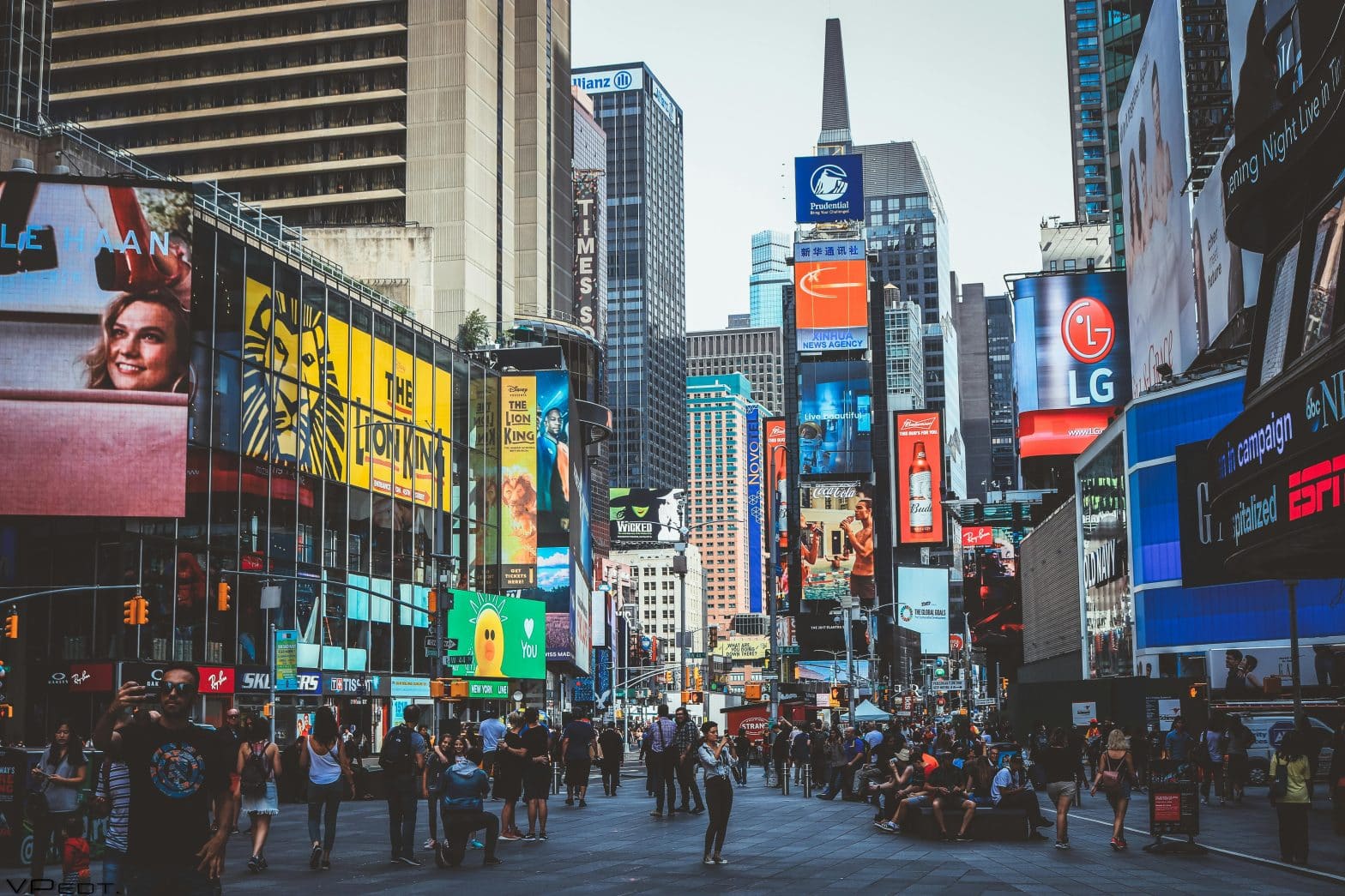The city that never sleeps, the Big Apple, Gotham … so many nicknames for New York, the most iconic city in the United States. The cultural magazine Time Out ranked it 3rd best city in the world in its 2025 ranking. New York continues to seduce people all over the world more than ever and many foreigners move there every year.
But moving 6,725 kilometres from Europe is something you’d better prepare for! In this guide, we give you all the information you need to organise your departure with the maximum peace of mind: visas, work permits, cost of living, family life, health insurance … we tell you everything.
Living in New York: advantages and disadvantages
Advantages
- A very dynamic job market
- A cosmopolitan city par excellence, with, for example, no fewer than 30,000 French and more than 18,000 Germans
- A modern and comprehensive public transport network
- More than 4,000 parksvall over the city
- An important cultural centre (musical events, theatres, film culture, street festivals, etc.)
- ● A city that (literally) never sleeps, with a wide range of activities on offer 24 hours a day
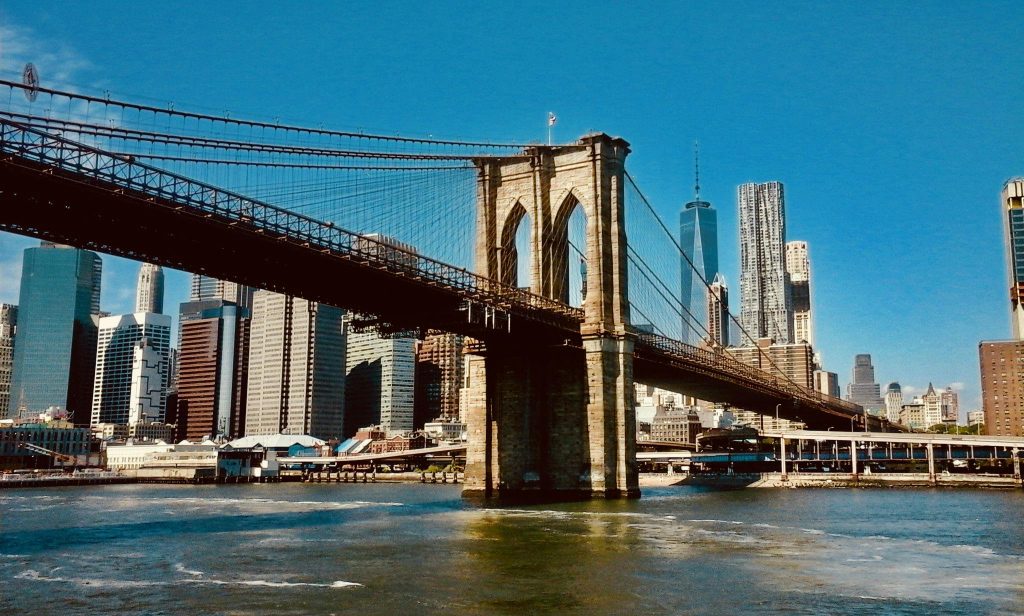
Obtaining a visa: step 1 of expatriation to New York
Trying to obtain a Green Card
In the United States, the famous green card grants permanent resident status to foreigners. There are several ways to obtain it, including marrying a citizen or being hired by an American company that can take care of the process.
It is also possible to obtain a Green Card in a typically American way: the lottery! Every year, the United States organises the Green Card Lottery, which offers 50,000 people the opportunity to become permanent residents.
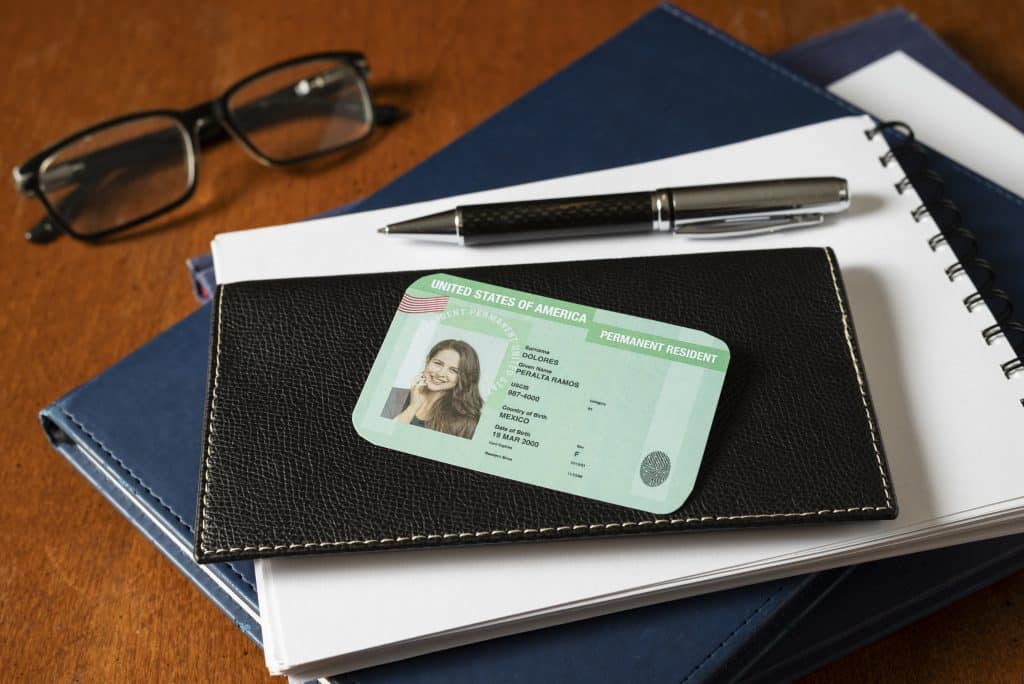
Visas for a stay of more than 90 days
The United States offers two main categories of visas:
- Non-immigrant visas, for temporary stays;
- Immigrant visas, for settling in the country.
This second category includes several types of visas, including:

- E visa (E1, E2, etc.): for employees whose employer applies for immigration;
- C5, T5, R5 visas: for investors and entrepreneurs creating employment in the United States;
- O and P visas: for artists and athletes;
- F-1 visa: for students wishing to continue their studies in the United States.
As you can see, there are many options. To find out which visa best suits your situation, please consult the Visa page of the United States Embassy in your country of residence, such as this one for the UK: https://uk.usembassy.gov/
Accommodation in New York
With a population of over 8,000,000, New York is the most populous city in the United States. It is divided into five boroughs: Manhattan, Brooklyn, Queens, Bronx and Staten Island.
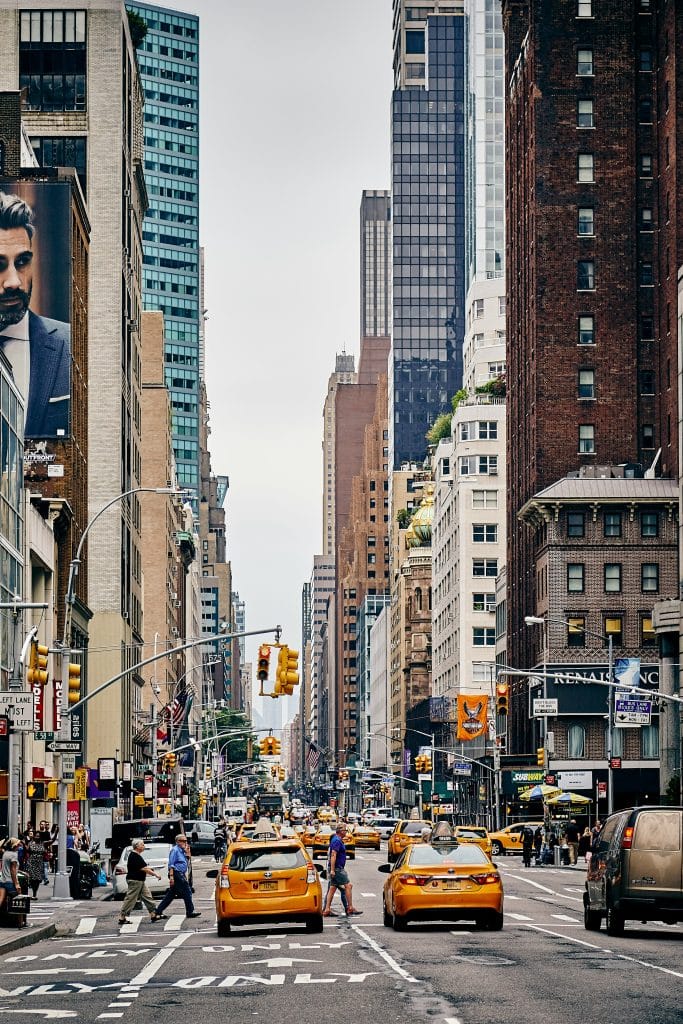
Which neighbourhood to choose?
- Manhattan offers a dynamic lifestyle in the heart of the city. Several neighbourhoods stand out: Battery Park City (ideal for family life), Tribeca, the Upper East Side/Upper West Side and Greenwich Village, known as The Village with its bohemian atmosphere.
- In Brooklyn, several neighbourhoods offer a unique atmosphere such as Brooklyn Heights with its historic charm, the trendy Dumbo neighbourhood or Park Slope with its residential and family atmosphere.
- Queens is a multicultural borough with neighbourhoods such as Astoria, Flushing, Roosevelt Island and Rockaway.
- The Bronx has a strong cultural identity with several lively areas and a strong musical and sporting culture.
- Finally, Staten Island is the choice of tranquillity. It is the least populated borough in the city, and is mainly residential.
What budget for accommodation in NYC?
Rents in New York are very high. In 2025, Numbeo ranked them among the most expensive cities in the world, ahead of San Francisco, London and Geneva.
For a one-bedroom apartment in the city centre, expect to pay an average of 3,600 euros per month. For more spacious accommodation with three bedrooms, the monthly rent is 7,900 euros.
As you move away from the centre, rents fall: 2,700 euros for a studio and 4,800 euros for a family apartment.
If you want to buy a property, the price per square metre varies between 12,000 and 17,000 euros.
Of course, as everywhere else, the choice of neighbourhood influences prices. A home in Manhattan will generally be much more expensive than a property in the Bronx, for example.
The cost of living in New York
The cost of living in New York is the highest in the United States, ahead of cities such as Miami, Washington or Boston. For more information, see our guide on the cost of living in the USA.
How much should you budget to live there?
To live in New York, a single person should budget 4,000 euros per month and a family of four should budget more than 12,000 euros per month. These averages include the main items of expenditure, namely rent, shopping, transport, medical care, education and leisure.

How much do you need to earn to live well in New York?
According to the latest official figures from the BLS (US Bureau of Labor Statistics), the average wage for employees in New York is $1,300 (€1,200) per week, or approximately $5,200 (€4,800) per month.
This income ensures a comfortable lifestyle, but it all depends on your family situation and your consumption patterns.
Getting around New York as an expat
Traffic jams are a vexin, but integral part of New York life. To deal with this, the authorities have introduced a $9 (€8.34) charge for driving in certain areas of the city during peak hours. Getting around by car can be difficult!
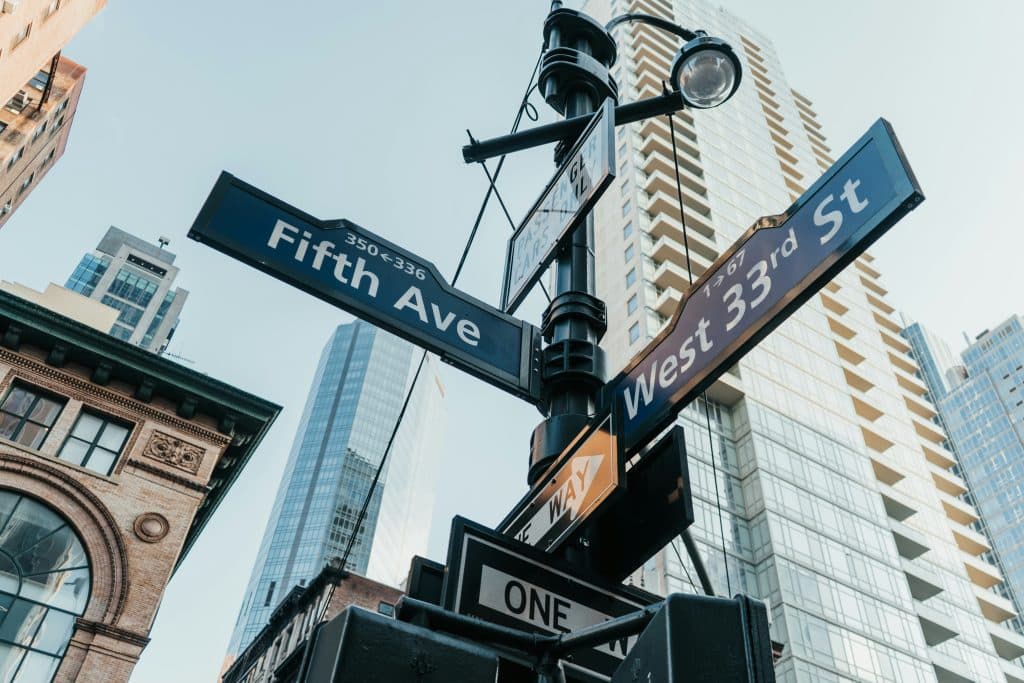
The vast majority of residents therefore prefer to use public transport, particularly the metro (which operates 24 hours a day), buses and taxis.
To take the metro, you will need a MetroCard, the equivalent of the Navigo pass in Paris or the TravelCard in London, for example. A new contactless payment method, the OMNY system, has also been introduced and will eventually replace the MetroCard.
All you need to do is use your bank card or smartphone to pay for your journeys on public transport. To make it easier to plan your routes, you can use the MyTransit NYC app or simply Google Maps, which is very effective.
Living in New York with your family
New York is certainly the number one destination for a family living in the United States. It has thousands of green spaces, numerous cultural activities and, above all, a large network of high-quality public and private schools.
You can choose to send your children to an American school or an international school. In the United States, classes end at 3pm at the latest. Extracurricular activities are very popular, especially sports.When it comes to family outings, there are many options available to you. Here are a few must-sees:

- Have fun in the 341 hectares of green space in Central Park
- Let the kids explore Times Square
- Visit the American Museum of Natural History
- Spend a day at Coney Island
- Discover the Central Park Zoo
Working in New York
If you have obtained a work visa or a Green Card, you can work legally in the United States, provided you have a Social Security Number (SSN).
To obtain one, you must apply for it, preferably at the same time as your visa application.
The New York economy is dynamic and relies on many sectors where there are numerous employment opportunities:
- Textile, jewellery and clothing industries
- Wood and metal industries
- Service sector: advertising, communication, marketing
- New technologies
- Finance
- Education
The healthcare system in New York

The US healthcare system is quite complex. Public institutions do not cover all healthcare, which makes the private medical sector essential.
Taking out health insurance is not only compulsory, but also essential to meet the very high costs of healthcare.
In New York, several modern medical institutions offer high-quality care, including:
- Mount Sinai Hospital
- Bellevue Hospital
- North Shore University Hospital
- Langone Hospital
International health insurance for you and your family
More and more expats are choosing to take out international private health insurance. At Foyer Global Health, we are experts in health cover for expats. By choosing our insurance, you benefit from:
- Worldwide cover, valid in the United States and everywhere else
- The freedom to choose the healthcare facility of your choice, without fear of exorbitant costs
- Emergency repatriation to your country of origin, if necessary
- Additional services for your well-being (teleconsultation, mental health coaching, Get Fit Programme, etc.)
Because expatriation can sometimes be a source of stress, insure your physical and mental health with Foyer Global Health.
